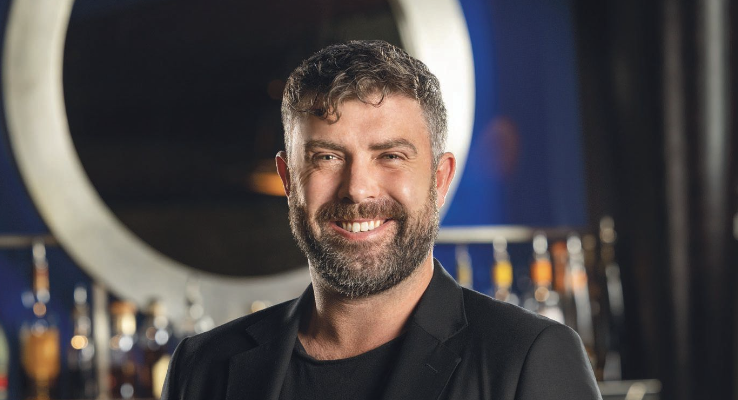Ryan Rearden is an entrepreneur, strategist, and business leader based in Atlanta, GA. His career spans hospitality, consulting, and technology, and he has built multiple ventures along the way. But his path to success has not been without setbacks. Through failures, tough lessons, and pivots, Rearden has learned how to adapt and grow in an ever-changing business world.
“I used to think success was about avoiding failure,” Rearden says. “Now I know success is about learning from failure and using it to move forward.”
A CAREER BUILT ON ADAPTABILITY
Rearden started his career in hospitality, working with industry giants like MGM Resorts International and Drai’s Enterprises. He gained experience in operations, finance, and high-level management. But it wasn’t long before he wanted to build something of his own.
His entrepreneurial journey took him into the nightlife and hospitality industry, where he co-founded ventures such as Dinner With a View, a global dining concept. He also launched Fliiks, Inc., a tech-driven entertainment company, and became a partner in Two Roads Consulting.
“I’ve always looked for gaps in the market,” he says. “The best businesses come from identifying a need and figuring out how to fill it.”
THE LESSONS OF FAILURE
Not all of Rearden’s ventures have been smooth. One of his biggest business challenges came when he partnered in a hospitality company that had hidden financial problems. The business quickly faced legal and operational issues, forcing him to pivot.
“That experience taught me a lot,” he says. “Always do your due diligence, no matter how good a deal looks.”
Despite setbacks, he didn’t let failure define him. Instead, he took what he learned and applied it to future ventures. This resilience helped him find new opportunities in consulting, where he now advises businesses on strategy, growth, and problem-solving.
“Failure isn’t the end,” he explains. “It’s just a redirection toward something better.”
THE POWER OF STRATEGIC PARTNERSHIPS
One of the biggest lessons Rearden has learned is the importance of working with the right people. Early in his career, he tried to handle everything on his own. But over time, he realized that smart partnerships can accelerate success.
“The right partners bring skills and connections you don’t have,” he says. “No one succeeds alone.”
Through collaborations with experts in hospitality, tech, and finance, Rearden has been able to expand his reach and grow his businesses faster. He believes that the key to a successful partnership is trust, shared vision, and complementary strengths.
EMBRACING INNOVATION AND THE FUTURE
Rearden is always looking ahead. He is currently working on a new app that aims to create a unique niche in the gig economy. He is also on the board of a consulting firm focused on improving emergency response strategies for small municipalities.
One trend that excites him is artificial intelligence in customer service. He believes AI will reshape industries by making experiences more personalized and efficient.
“AI isn’t about replacing people,” he says. “It’s about using technology to make interactions better and more meaningful.”
ADVICE FOR ASPIRING ENTREPRENEURS
Rearden has simple but powerful advice for those looking to start their own businesses.
“Don’t wait for the perfect time,” he says. “It doesn’t exist. Start now, test your ideas, and be willing to adjust.”
He also emphasizes the importance of learning from others. He credits much of his success to the mentors and partners who have guided him over the years.
“Surround yourself with people who push you to be better,” he says. “And never stop learning.”
MOVING FORWARD WITH PURPOSE
Rearden’s career is a testament to resilience, adaptability, and strategic thinking. From the highs of successful ventures to the lows of business failures, he has continued to grow and evolve. His journey proves that setbacks don’t have to hold you back—they can be the fuel that drives you forward.
“The only real failure is giving up,” he says. “Everything else is just part of the process.”



